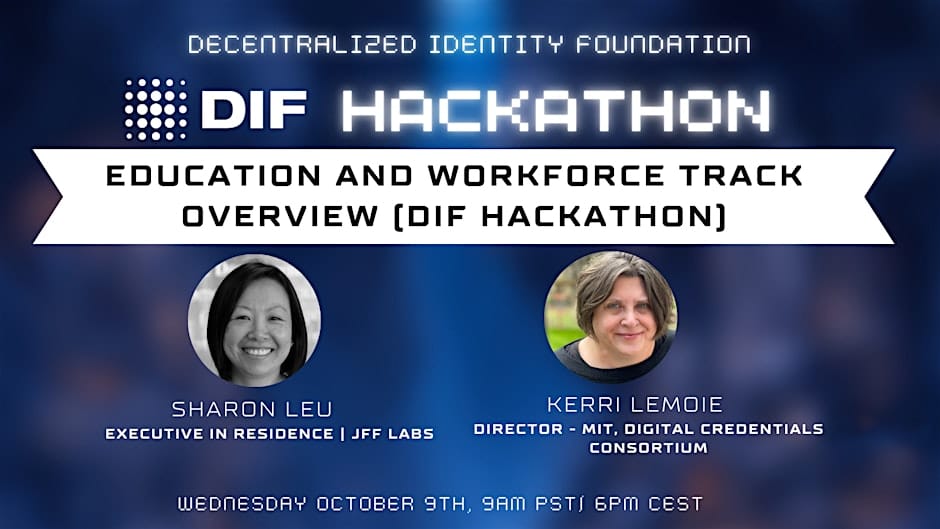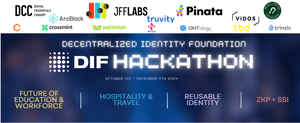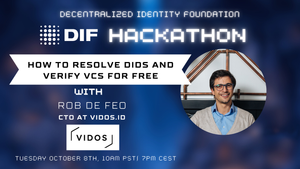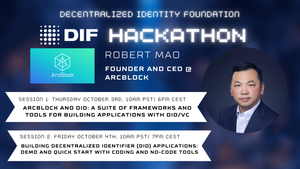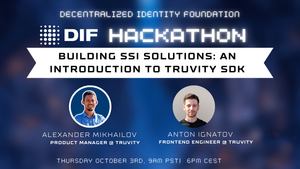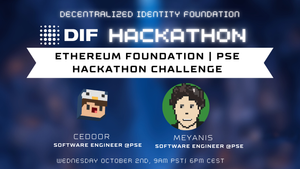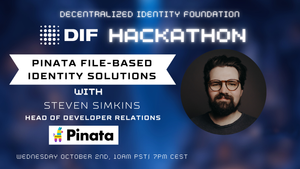The Future of Education & Workforce track, sponsored by Jobs for the Future and the Digital Credentials Consortium, invites you to explore a future where education is accessible to all learners and acts as a true gateway to economic advancement.
Building on the work of the JFF Plugfest competitions, participants can use tooling and resources that give them a quick start, and the confidence that their submission will provide real value to learners and workers.
Jobs for the Future (JFF)
Jobs for the Future is a nonprofit organization committed to transforming the US workforce and education systems to achieve equitable economic advancement for all. JFF drives change by designing innovative solutions, scaling best practices, influencing public policies, and investing in the development of a skilled workforce. JFF Labs is the innovation arm of the organization, focused on building the infrastructure for a skills-based talent marketplace, supporting an ecosystem of open standards-based interoperability that enables credential portability, and empowering individuals to use their data to access opportunity.
Digital Credentials Consortium (DCC)
The Digital Credentials Consortium is a network of leading universities and institutions advancing the use and understanding of portable, verifiable digital academic credentials in higher education through open source technology development and leadership, research, and advocacy. Founded by MIT and partners worldwide, DCC encourages a learner-centered ecosystem where portable, verifiable digital credentials are universally recognized and easily shared. By fostering collaboration among academia, industry, and standards organizations, DCC is working towards a future where these credentials are more accessible, secure, and verifiable.
The Challenges
Participants can choose from multiple challenges designed to push the boundaries of what's possible with VCs:
1. Verifiable Learner / Worker IDs and Records
Demonstrate the transformative potential of user-controlled data in learning and professional experiences. Use VCs such as Student IDs, Employee IDs, and Employment History to showcase compelling use cases such as:
- Applying for new job opportunities using proof of employment history
- Accessing platforms based on verified credentials
- Demonstrating essential skills through verifiable records
- Implementing selective disclosure principles to share only necessary information
2. Powerful New VC Tools
a. Multiple Language Support
Promote cross-border mobility by enabling educational credentials to be meaningfully used internationally. Build a tool that constructs VCs in any language, with a special emphasis on non-Latin scripts, using the renderMethod attribute
b. Browser Integration
Enhance convenience and usability by developing a browser plugin for displaying and verifying VCs. This challenge also requires the use of the VC renderMethod attribute.
3. Feature Enhancement
a. Learner Credential Wallet
Add support for the Learner Credential Wallet to use the VC renderMethod attribute, enabling rich displays of credentials within the application.
b. VerifierPlus
Enhance VerifierPlus to support rich displays using the renderMethod attribute, including capabilities for PDF rendering.
4. Bonus Design Challenge: Establishing Credibility in Digital Credentials
Explore innovative ways organizations can integrate VCs into their processes to build trust among users. Design the equivalent of a "browser padlock" for Verifiable Credentials, helping users understand that verification checks are valid and trustworthy.
Prizes
This track offers a substantial prize pool totaling $15,000, distributed among top submissions that meet the challenge criteria and demonstrate exceptional innovation and impact.
Submission Requirements
All submissions must adhere to the following criteria:
- Open Source Licensing: Projects must be open source under the MIT license to promote transparency and collaboration.
- Technical Interoperability Standards: Submissions must comply with the technical standards used by the JFF Plugfest, including:
- Credential Format: Open Badges 3.0 (using Verifiable Credential format)
- Issuing Credentials: Utilize VC API with CHAPI or OpenID for Verifiable Credential Issuance
- Exchanging Credentials: Use CHAPI, OpenID for Verifiable Presentations, or WACI-DIDComm Interop Profile
Participants are encouraged to build upon tools provided by the Plugfest, such as VC Playground, CHAPI, and the Digital Credentials Consortium Wallet.
Why Participate?
By joining this track, you have the opportunity to:
- Contribute to solutions that can have a real-world impact on education and workforce development
- Collaborate with leading organizations in the decentralized identity space
- Showcase your innovative ideas and technical skills to a global audience
- Be part of a movement that is shaping the future of learning and work
Sharon Leu, Executive in Residence at JFF Labs, highlights the importance of the challenges: “The challenges that we proposed are critical to the infrastructure that will help learners and jobseekers find meaningful opportunities at all stages of their learning and employment journey. We are excited for this community to work together to create the tools that will give people control of their data in wallets, data models that allow them to express their different identities as workers and learners, multi-language support for verifiable credentials, and a seamless verification experience for relying parties with minimal technology capacity.”
“The Digital Credentials Consortium advocates for open source, open standards, and open community to foster transparency, collaboration, and innovation in the development of digital credentialing systems,” adds Kerri Lemoie, Director at MIT Digital Credentials Consortium. “Hackathons foster creativity and collaboration, bringing together diverse minds to solve real-world problems in a short amount of time. Through experimentation, skill development, and community building we hope the participants are inspired to make tools and technologies that will enhance trust of portable, verifiable digital credentials that democratize access to educational achievements and skills verification.”
Kim Hamilton Duffy, Executive Director of DIF, emphasizes the transformative potential of this track: "Education and workforce development have the power to change lives. This challenge embodies the core reason I became involved in decentralized identity – to ensure people have control over credentials that are portable, verifiable, and meaningful across borders and contexts. I'm thrilled to see the innovative solutions our participants will create to address these critical issues."
Join Us in Revolutionizing Education and Workforce Development
Whether you're a seasoned developer in the decentralized identity space or new to the field, your participation can make a significant difference. Together, we can build the next generation of tools that will empower learners and workers worldwide.
Ready to Take on the Challenge?
Register for the DIF Hackathon 2024 and select the Future of Education & Workforce track. Let's collaborate to create a more accessible and verifiable future for education and career advancement.
- Register now: https://difhackathon2024.devpost.com/
- Join our informational session: https://www.eventbrite.com/e/education-and-workforce-track-overview-tickets-1029330524307
- Read details about the challenges, prizes, and submission requirements: https://identity.foundation/hackathon-2024/docs/sponsors/edu/
- Join the discussion on the DIF Hackathon discord: https://discord.gg/WXPzWvBCjD
Join us in shaping the future of education and work through innovation and collaboration.
